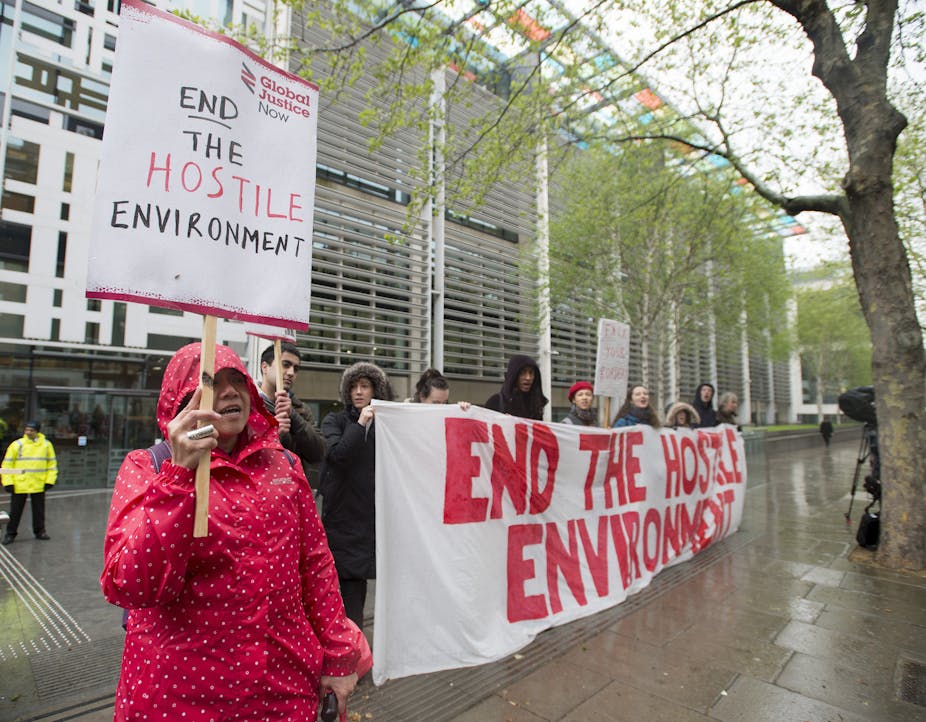Amid the many recent criticisms of the British Home Office have come reports that “at least 1,000 highly skilled migrants” have been refused indefinite leave to remain in the UK. They face removal from the country on the basis of “bad character” under paragraph 322(5) of the Immigration Rules.
The 1971 Immigration Act created a power to make rules which are intended to be a complete statement of who is eligible for leave to enter or remain in the UK and on what grounds. But those who meet the requirements for a particular category can still be refused on one or more of the “general grounds for refusal” contained in paragraphs 320, regarding entry, and 322 regarding remaining.
Paragraph 322(5) says that applications for leave to remain “should normally be refused” if it is “undesirable” to let them remain because of “conduct … character or associations or the fact that he represents a threat to national security”. It also covers those with previous convictions who are not facing deportation as foreign national criminals. The core of these policies is to exclude people whose presence is “not conducive to the public good”.
Used for tax errors
On the face of it, the reference to convictions and threats to national security imply that there is a fairly high threshold for refusal. But the Highly Skilled Migrants support group reports that the Home Office is refusing large numbers of applications under paragraph 322, especially subsection (5), over minor and non-criminal tax issues. They also complain of inconsistency, arguing that “people with the same immigration history are successful with one application and unsuccessful with another”. It leaves them with no right to work and searching for the money for legal bills.
The most common basis for refusal appears to be that the person rectified a tax return error – which is not an offence – or that there was a difference between the income declared on their tax return and that on their application to remain. This, of course, is generally for legitimate reasons: income in the tax year is not necessarily the same as income in any other 12-month period.
Guidance for Home Office decision-makers advises that:
The main types of cases you need to consider for refusal under paragraph 322(5) or referral to other teams are those that involve criminality, a threat to national security, war crimes or travel bans.
There is nothing in the guidance to indicate that “character” is intended to cover making a mistake on a tax return.
The best evidence available on the intentions behind this rule is set out in a 2016 Parliamentary briefing (PDF) by researcher Melanie Gower on powers to exclude or refuse leave to foreign nationals. Debates indicate that the powers were very much aimed at prevention of terrorism, hate speech and criminality – including suspected criminality such as gang membership, for which it might be difficult to secure individual convictions.
A target culture
The use of these powers in an apparently arbitrary way and against people they were not designed to target suggests this is part of the wider “hostile environment” which was originally declared for “illegal immigration”. This includes people being asked to prove their immigration status before they can access rental accommodation, health services, bank services, marriage and so on – policies which compel landlords, registrars and receptionists to act as immigration officials.
But it also includes the determined effort to reduce immigration even when immigration is obviously in the UK’s interests, particularly to employers such as the NHS. Meanwhile, legal aid for the majority of these cases has been abolished – a real problem for those losing jobs as a result of bad decisions.
Read more: 'Hostile environment' immigration policy has made Britain a precarious place to call home
Some of this is deliberate policy. But some of it is chaos: the Home Office employs too few staff and imposes unmanageable work targets on them with too little training. Whistleblowers in recent months have described making the easiest and quickest decision under threat of losing their jobs if they fail to meet targets.
The Home Office disputes this, insisting that training, support, workloads and internal quality assurance are adequate. But reports by the Independent Chief Inspector of Borders and Immigration suggest otherwise, at least in overseas entry clearance posts, where staff report being given only five minutes to review some applications.
And it appears the immigration minister, Caroline Nokes, knew about some of the problems faced by highly-skilled migrants in February, but she chose not to reveal this to the Home Affairs Select Committee in May.
It seems the hostile environment also extends to the internal workings of the Home Office and it’s that – rather than the presence of highly skilled migrants – which is not conducive to the public good.

